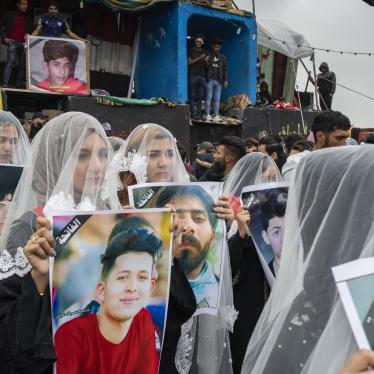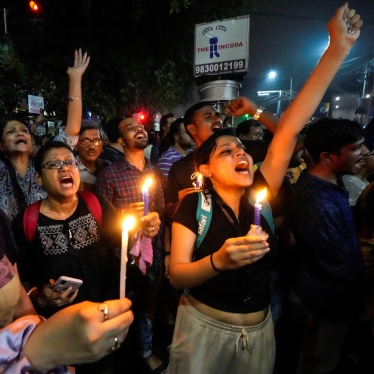John Sexton
President
New York University
Dear President Sexton,
On April 12, 2011, Human Rights Watch wrote to you regarding the detention of law-abiding democracy advocates by the government of the United Arab Emirates (UAE). Since that time the UAE authorities have intensified their crackdown, arresting additional pro-democracy activists and dissolving the elected boards of directors of the Jurists’ Association and the Teachers’ Association, two of the few independent civil society organizations in the UAE.
In light of that background and New York University’s close collaboration with the UAE government, we are concerned about reports from attendees of a meeting on May 5, 2011, where members of the NYU Faculty Senate expressed concern about the suppression of free speech in the UAE. These attendees have said that you cautioned against jumping to conclusions by challenging the “assumption” that the activists were arrested because of what they said or wrote rather than because they were a genuine security threat. They said that you emphasized that the UAE had “security concerns” and that like any state, the UAE “had a right to defend itself against security threats.”
As far as we are aware, you provided no evidence, then or later, to support any allegation that the detained UAE citizens were genuine threats to the security of the UAE. This allegation stands in stark contrast not only to the documented facts that we and other human rights organizations have gathered concerning the unwarranted persecution of these political activists, but to the actual charges lodged against them.
As you no doubt know, one of those arrested, Ahmed Mansoor, is a prominent human rights advocate and a member of the Advisory Committee of Human Rights Watch’s Middle East and North Africa division; another, Nasr bin Ghaith, is a well-known economist and lecturer at the Sorbonne branch in Abu Dhabi. As far as we can ascertain, the real reason that these five men were arrested, remain imprisoned, and face criminal prosecution is that they signed, circulated, and promoted a petition that respectfully called on the rulers of the UAE to grant a greater degree of democratic participation. We would point out that the government has charged four of the five only of violating article 176 of the UAE penal code, which makes it a crime to publicly insult the president or other top officials of the UAE.
We call your attention to the fact that since their detention all five have been the targets of inflammatory articles in the UAE media, a vicious online smear campaign, and even death threats; their families have also been threatened. Pro-government demonstrators have denounced the accused at public gatherings and even at rallies outside court hearings. In such a highly charged atmosphere, and given your position as the president of a major US university with a branch in the UAE, it strikes us as most unfortunate that you felt it necessary to imply that the detainees may represent genuine threats to the UAE’s national security. Such unsupported allegations may aid the government-supported campaign against them and their families and add to the grave danger in which they already find themselves.
During that same May 5th Faculty Senate meeting you are also reported to have said that NYU needs to be less “ethnocentric,” and more humble, when approaching other cultures. Some of those attending understood you to be implying that human rights are not universally applicable and that political repression is somehow culturally acceptable in the context of the UAE. We find most distressing the notion that citizens and residents of the UAE do not value, and are not entitled to, the same human rights as everyone else. The events of the last six months in the Arab world – indeed, the very fact that UAE citizens have petitioned their own government for democratic rights (and are now being prosecuted for so doing) – have made it abundantly clear that Arabs want governments that represent them, and that respect their human and civil rights, as much as any other people in the world. Your evocation of the UAE’s supposedly distinctive cultural values may provide justification for that country’s resort to crude political repression in the name of protecting national security, but it also undermines your assertions that the presence of NYU in Abu Dhabi will help spread the university’s liberal and humane values in the UAE.
I call on you to retract your suggestion that the detained activists may pose a genuine security threat to the UAE, unless you are prepared to provide evidence to support such a suggestion. I also urge you to find a way to publicly dispel the idea that the people of UAE are any less entitled to respect for their basic rights than people anywhere else.
We hope that you will respond to our concerns promptly.
Sincerely,
Sarah Leah Whitson
Executive Director
Middle East and North Africa Division





